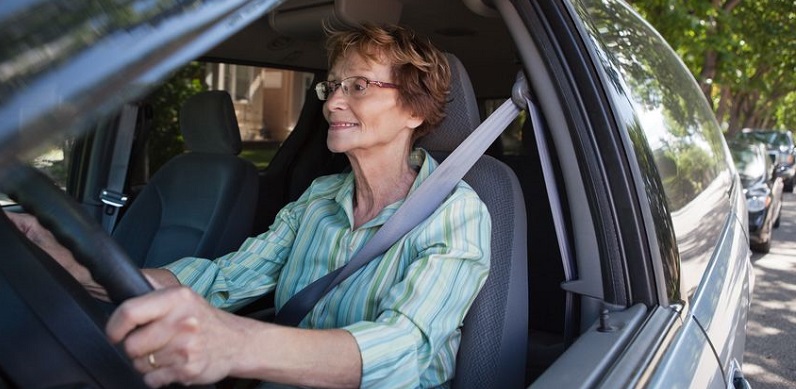If you notice your loved one exhibiting one or more of these behaviors, evaluate the circumstances now — before a potential car accident occurs.
How can you determine when a senior you love can no longer drive safely?
Taking the car keys from a senior loved one is a difficult decision. Since many older people want to keep the freedom to drive as they please, this decision should be made as thoughtfully and carefully as possible. Here are some warning signs to be aware of:
Sudden, Unexplained Car Movements
Elderly drivers who brake or stop suddenly or hit the accelerator abruptly without apparent cause may lack the physical dexterity or decision-making skills necessary to react to multiple images and sounds that occur simultaneously while driving.
Increased Confusion
Some seniors become easily confused or nervous in traffic or lose their way, even on familiar streets. They may fail to use their turn signals when necessary or leave them on without turning or changing lanes.
Declining Vision
If your loved one has trouble seeing pedestrians, traffic signs, objects, or even other vehicles, he or she might be at an increased risk of causing a collision. If they recently got their vision checked and are still having difficulty seeing when they drive (particularly at night), it could be an indication that their vision is not sharp enough to operate a motor vehicle safely.
More Traffic Tickets
If your loved one has received multiple traffic citations or warnings in the last couple of years or has had one or more “near misses” on the road, it might be a sign that they are lacking the concentration necessary to abide by traffic laws.
What Should I Do?
If you notice your loved one exhibiting one or more of these behaviors, evaluate the circumstances now — before a potential car accident occurs. Don’t just take the keys away from an elderly person; instead, try one or more of these strategies to further evaluate their driving ability:
- Do a “ride-along” to see exactly how they drive. Try to stay calm and never berate them for any errors or miscalculations that they may make.
- Periodically check the vehicle for any new dents, scratches, or scrapes.
- Gently suggest that they take a driving test to evaluate their ability to drive.
- If you think they are still capable of driving but are just having a hard time at the moment, consider suggesting a AAA Mature Operator course to update their driving skills and improve their confidence.
- Research other transportation options that might be available to your loved one before you make the decision to take their keys.
- If you do decide to take their keys away, remind them that they are not losing their independence, and speak to them about alternate methods of transportation that may be available.
When considering whether to take an elderly person’s car keys away, remember that age should not be the only motivation for doing so. A person’s physical and mental condition should also be considered, as many elderly people are still active and safe drivers, while some younger individuals can be dangerous to themselves and others with whom they share the road.

